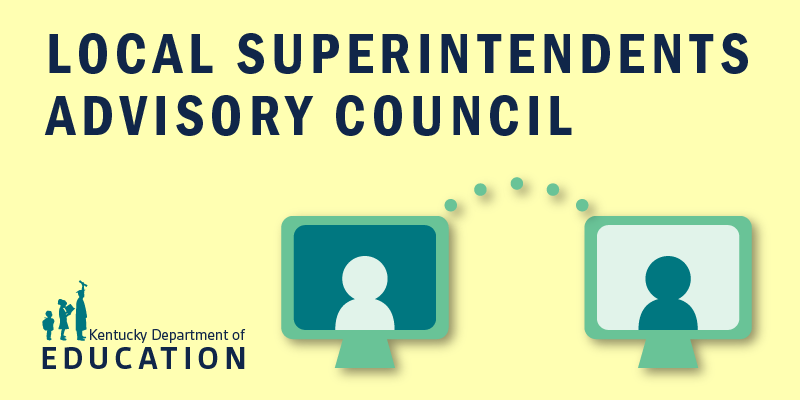- Sixteen school districts have asked the Kentucky Board of Education for an exemption to the training required by Kentucky law.
- Proposed changes to the regulation would require training of an authorizer only after receipt of an application.
By Mike Marsee
mike.marsee@education.ky.gov
The Kentucky Department of Education (KDE) will recommend waivers that would allow local boards of education to delay the annual 12-hour charter school authorizer training until they receive an application for a charter school.
Interim Kentucky Education Commissioner Kevin C. Brown told the Local Superintendents Advisory Council at its meeting Jan. 28 in Frankfort of his intention to make two recommendations to the Kentucky Board of Education (KBE). First, he will ask the board to grant waivers for 16 school districts that have asked to be exempted from the training that is required by Kentucky law. In addition, he will request a blanket waiver applicable to all districts that would require the training only after an application to open a charter school has been submitted to a local board.
As only one local school board has received an application since the passage of the charter law, some board members have indicated the annual training requirements are overly prescriptive.
“We hear the frustrations of the districts,” Brown said.
KBE will address those waivers at its Feb. 4 meeting. At its most recent meeting Jan. 17, the board expressed support for legislation that would amend the statutory authorizer training provisions when it adopted its list of legislative policy priorities for the 2020 session of the Kentucky General Assembly.
That legislation, House Bill 220, was approved Jan. 28 by the House Education Committee. It now advances to the full House of Representatives.
Both the waivers, which would be valid until June 20, 2021, and the proposed regulatory change come with a caveat: If a local school board receives a charter school application, the required training must be completed within 10 days. If all the members of a board have completed the training, however, they will not be required to go through the training again in the same calendar year.
Whitney Crowe, a policy adviser in KDE’s Office of Continuous Improvement and Support, told the superintendents that if KBE approves the blanket waiver, districts will receive formal instructions on how to proceed following the Feb. 4 meeting.
The General Assembly allowed for the establishment of charter schools in 2017, stating that any proposed charter schools must be authorized by either a local board of education, a collaborative of local school boards or the mayor of Lexington or Louisville. Only one charter school application has been filed to date, and it was denied by the Newport Independent Board of Education in December.
The superintendents’ council also discussed the school security risk assessment tool that is required by the School Safety and Resiliency Act passed by the legislature in 2019.
The Kentucky Center for School Safety is required by the law to approve the tool, which will assess schools’ compliance with required safety and security measures, and KDE is charged with incorporating it into an administrative regulation.
Ben Wilcox, who was named the state school security marshal last summer and who was charged with developing the risk assessment tool, told the panel that is has been pushed out to schools.
He said about 10% of Kentucky’s schools have done an initial assessment for the current school year. Following that self-assessment, a compliance officer will visit the school for a walk-through that will provide an analysis of its security and vulnerability and allow the school to address changes that need to be made. The results of a second, unannounced visit during the 2020-2021 school year will be used to create a state report, and visits will be made annually thereafter.
In other business, the superintendents’ council named Tim Bobrowski of the Owsley County schools vice chairman. Jerry Green, chairman of the panel of 11 superintendents appointed by the Legislative Research Commission, plans to retire from the Pikeville Independent schools in June.




Leave A Comment